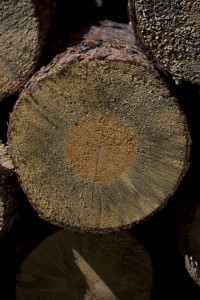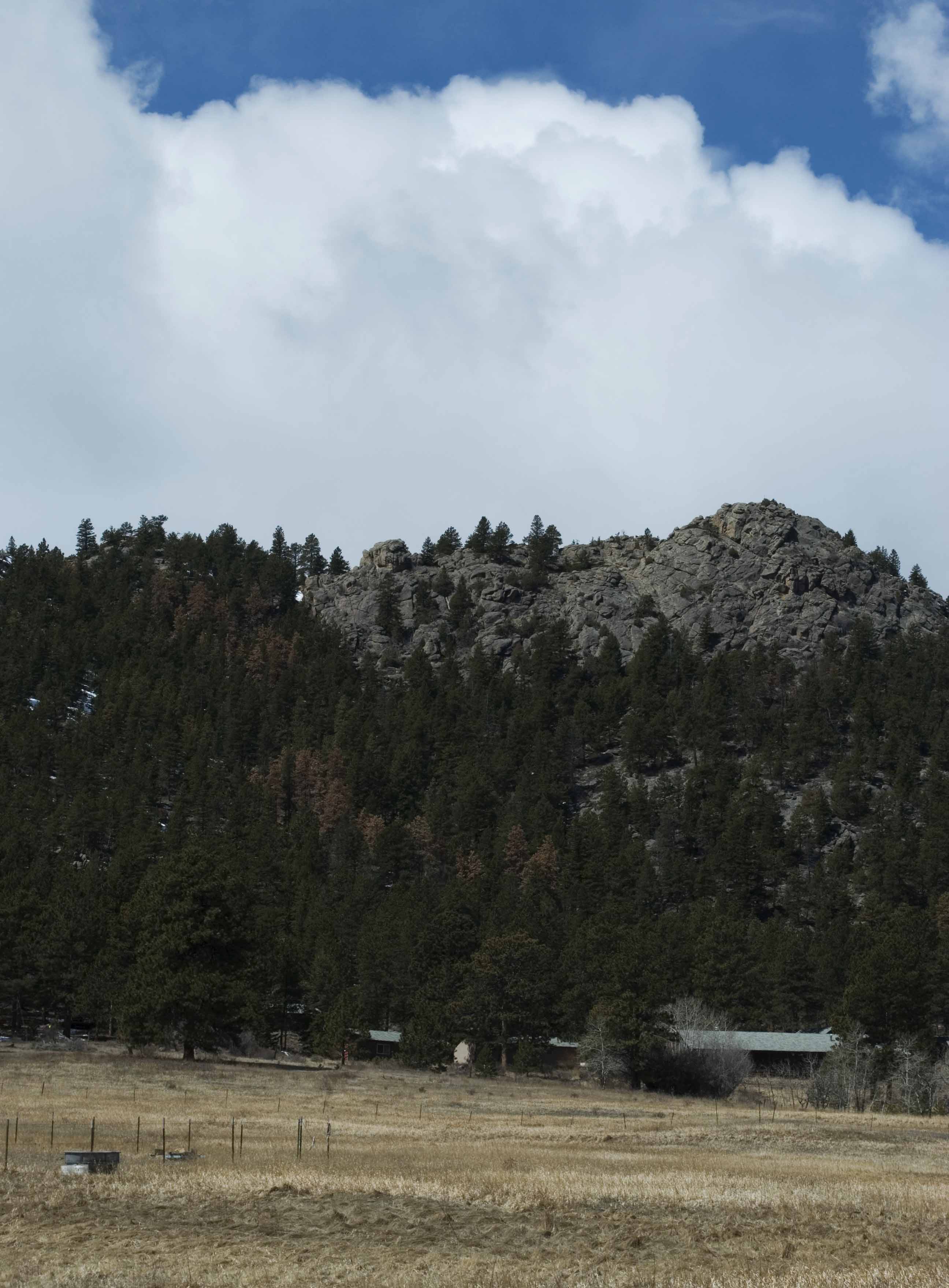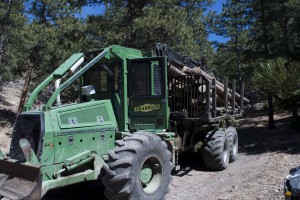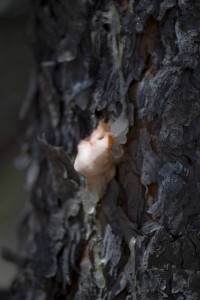Saturday
Featured StoriesProtecting the Forests of Shambhala Mountain Center

Blue Stain Fungus is carried by the Mountain Pine Beetle, leaving behind this distinctive pattern of discoloration in the wood of infested trees.
By Megan Winecoff and Chad Hofmann
The picturesque mountain landscapes of Colorado are changing drastically, as the effects of a Mountain Pine Beetle epidemic are now visible. Large areas of forest have died, leaving dry, brown skeletons of the trees that once thrived here. Since the epidemic began almost 15 years ago, the Pine Beetle has destroyed vast acres of forest spanning from New Mexico to British Colombia. The summer of 2010 revealed that the Ponderosa Pine forest of Shambhala Mountain Center, like most of the forests of the Rocky Mountain west, is not going to be spared as the beetles continue to spread. Large clusters of trees on the land have died and turned brown during the summer months.
Mountain Pine Beetle is a native species which is now experiencing an unprecedented population explosion. Change of land use, fire suppression, forestry practices and climate factors have all combined to create the conditions for this outbreak to occur.
Because we received a generous donation last fall, Shambhala Mountain Center’s Land Steward, Chad Hofmann, was able to hire and lead a crew to conduct a complete survey of Shambhala Mountain Center’s trees in September and October. The survey revealed what we all dreaded–2500 trees were infected and would die during the summer of 2011. It became clear that if these trees were not removed over the course of the winter months, when the beetles procreate and grow to maturity, three to seven trees per infected tree would be attacked by the beetles the following summer.
In February, Shambhala Mountain Center was successful in submitting a grant proposal and was awarded nearly $64,000 by the Colorado State Forest Service to implement a removal program. These funds will cover approximately 75% of the $85,000 project, and have enabled us to hire a local forestry contactor, Morgan Timber Products, to remove all of the infested trees. Morgan Timber has a small scale mill operation in Fort Collins and will be able to utilize 100% of the wood for various products, including dimensional lumber, fencing material, animal bedding, compost amendments, and even heating the Colorado State University’s Foothills Campus.
The removal of the infested, brood trees is the first step in mitigating the damage that could be caused by the Mountain Pine beetles. Further efforts will include protecting trees via spraying and continuing to monitor the health of our forests every fall to identify newly infected trees for removal. It is anticipated that these efforts will need to be maintained for the next 3-5 years as the beetles either pass through the area or the environmental conditions conducive the spread of the beetles change.
We feel very fortunate that we are able to do the work necessary to protect the majestic trees so characteristic of the land. Although this is a wonderful reminder of the impermanence of phenomena, we are hopeful that we may be able to preserve the environmental health of Shambhala Mountain Center’s ecosystem and retain the beauty and elegance of our forests.
We do need help in funding the remaining tree removal and spraying. If you are interested in supporting this project…
Or send a check made out to Shambhala Mountain Center marked “Save a Tree” to:
Shambhala Mountain Center
151 Shambhala Way
Red Feather Lakes, CO 80545
You can also contact:
Megan Winecoff at 970-881-2184 x382
[email protected]







